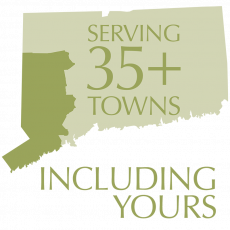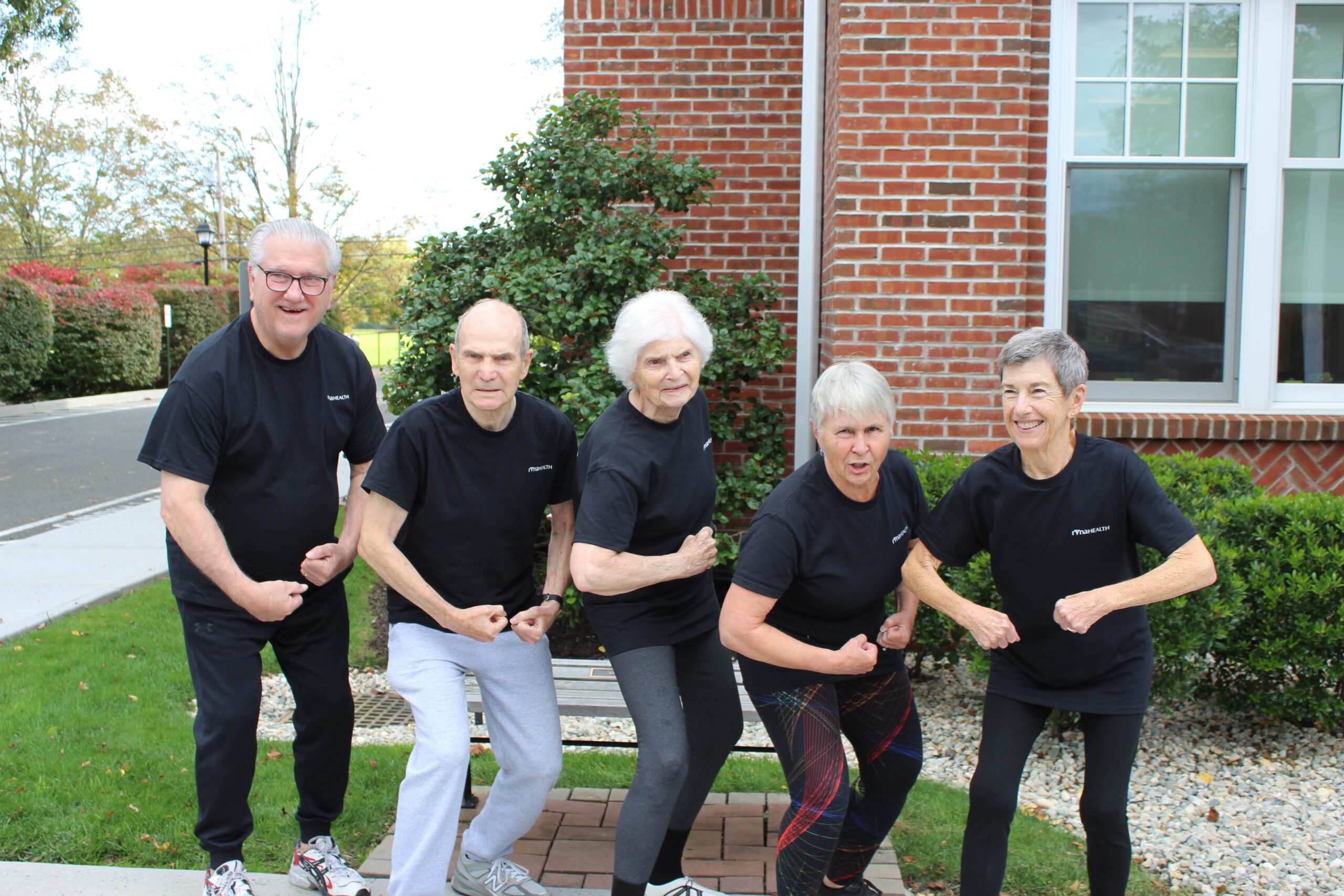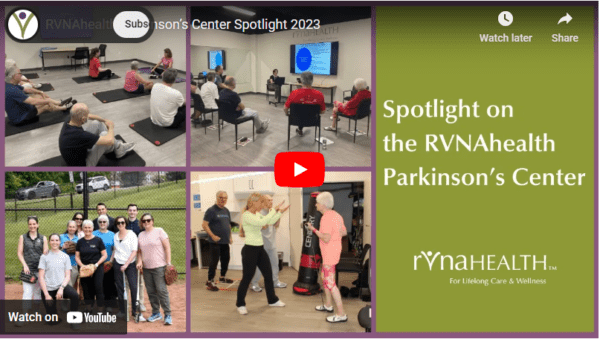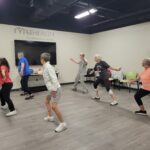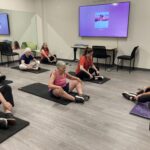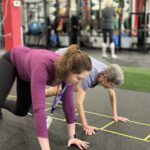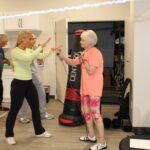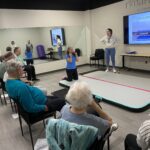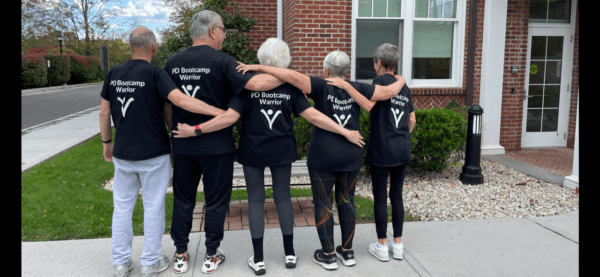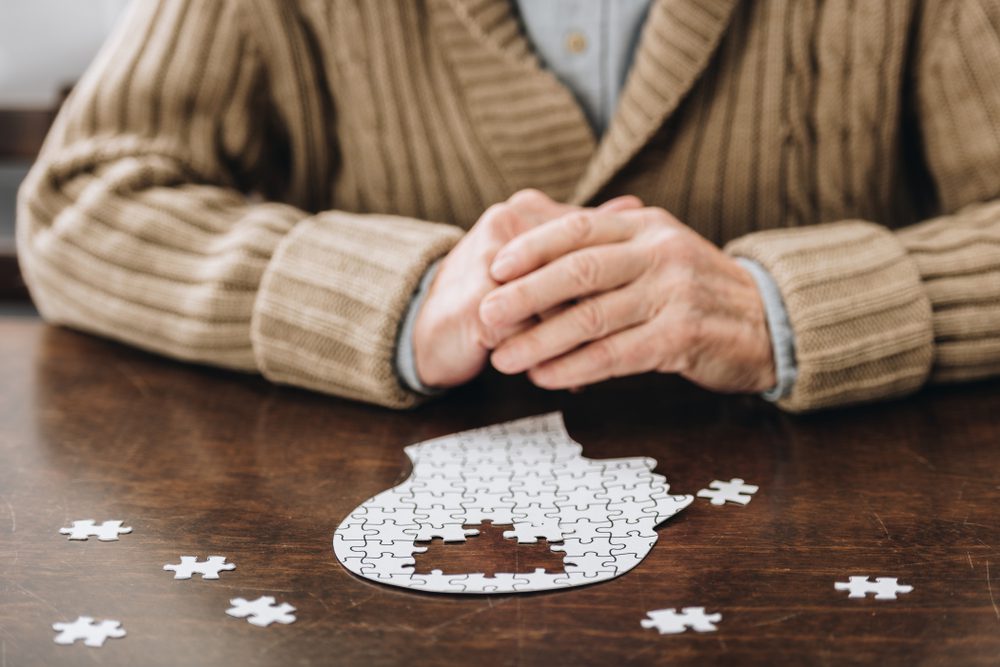On October 9th six brave Parkinson’s Warriors completed RVNAhealth’s first Parkinson’s disease (PD) Bootcamp program. These six clients spent eight weeks coming to our Ridgefield Center of Excellence twice a week to participate in our innovative PD Bootcamp. An intensive eight-week program, PD Bootcamp only takes six participants at a time, providing Parkinson’s patients with in-depth education about their disease, disease management, and exposing them to over sixteen different types of exercise. This first group of ‘bootcampers’ was funded by a grant from the Connecticut Chapter of the APDA. Graduates they are, but we like to call them “warriors!” Read on learn why…
About the RVNAhealth Parkinson’s Disease Center
Since the Parkinson’s Center launched in April of this year, the response from the Parkinson’s community has been overwhelmingly rewarding. “It’s been an amazing experience creating a formal program to provide vital Parkinson’s disease education, exercise programs, and support and resources. I am grateful to the entire Parkinson’s Center team for their tireless dedication. And of course, my congratulations go out to our first Bootcamp warriors who trusted in us and our program,” said Gigi Weiss, Director of RVNAhealth Rehabilitation Services and the Parkinson’s Center.
If you haven’t already heard about the Parkinson’s Center, check out our website and watch our spotlight video below!
PD Bootcamp…Dedication, Commitment, and Tools for Life
PD Bootcamp is designed as a small, intensive education and exercise program for those affected by Parkinson’s disease. Participants met together, with our RVNAhealth trained Parkinson’s specialists twice per week over the course of eight weeks. Our goal is to create relationships with our participants, deliver personalized education and plans, and equip them with the tools needed to live their best life.
Participants attended two exercise classes each week, with each class introducing them to a new type of exercise. Exercise classes included dance, boxing, Pilates, strength training, high intensity interval training, tai chi, and more! The goal in introducing so many different types of exercises is to help individuals find the exercise they enjoy most. “The only medically proven method of delaying the progression of Parkinson’s disease is exercise. So, what’s the best exercise to do? The one you enjoy and will keep up with!” says Kate Campbell, Doctor of Physical Therapy and Parkinson’s Center Program Manager. “Through our format, we really get to know these individuals and can best educate and guide them toward living their best life and taking control against their Parkinson’s.”
Bootcamp participants also attended a weekly educational session covering topics such as sleep, mental health, medication management, speech and cognition, and nutrition. PD Bootcamp workbooks provided reference materials and worksheets for individualized learning plans.
In the Words of Our Parkinson’s Disease Bootcamp “Warriors”
Thank you and congratulations to our first Bootcamp Warriors. We are grateful to share a few parting words from some of our graduates about their experience. If you have any questions about the Parkinson’s Center or its programs, please visit the RVNAhealth Parkinson’s Center website, join our newsletter subscription list, or email us at PCinfo@rvnahealth.org.
“Over the last year my PD has accelerated rapidly. Perhaps it is not noticed by others, but I can feel the loss of muscle, the exhaustion, each slur of words, every scuff of foot, forgetfulness, constant pain, and confused action. The only hope a Parkinson’s patient has to forestall a total and deliberate, debilitating decline into dependency is exercise. Fortunately, this RVNAhealth Bootcamp program addresses this and more! The RVNAhealth Parkinson’s Center and its PD Bootcamp program demonstrates how to interweave exercise and information into your daily schedule. It is a lot to do – but it gives you control, and a confidence you cannot find elsewhere! This program helps guide those diagnosed with Parkinson’s disease through the myriad of symptoms they must confront and gives them the knowledge and defensive tools needed to continue on and live a purposeful life.” – Barbara
“I just finished the PD Bootcamp at the RVNAhealth Parkinson’s Center. What a great program and what a great experience for someone like me who is relatively newly diagnosed. Kate, Andrea, and Meg led a thorough program that kept me engaged for the entirety of the program. You were so visionary in designing and offering this program. I am now more aware of my disease what I can expect and the things I can do to help me cope with the Curveballs of Parkinson’s. I hope you are able to include this in your regular programming because it is so needed.” – Joe.
Congratulations again to all of our first Bootcamp Warriors!

